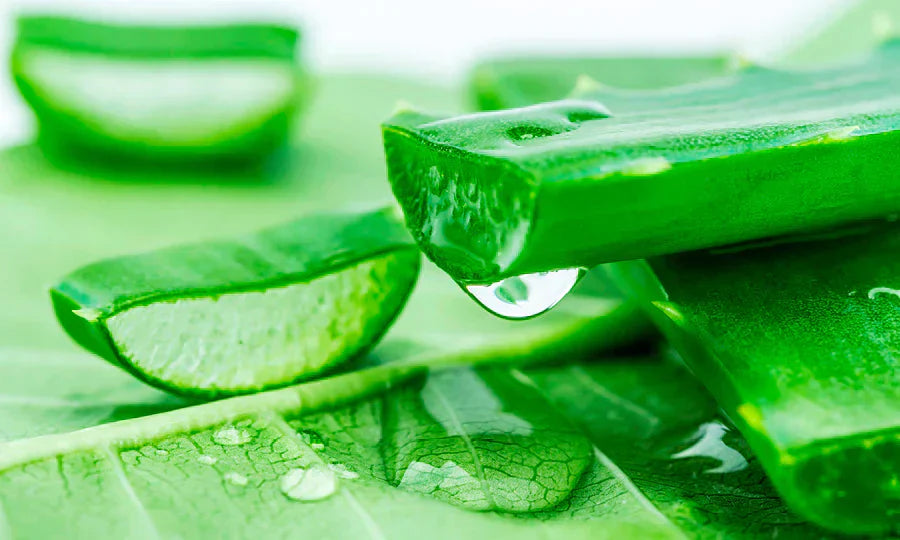Your Cart is Empty
FREE SHIPPING on US orders over $45. Save 25% With Code TAKE25 at checkout.
FREE SHIPPING on US orders over $45. Save 25% With Code TAKE25 at checkout.
Your Cart is Empty

The humectants draw moisture from the deeper layers of your skin and even from the surrounding environment when the humidity is above 70%.
Your skincare routine will be complete when you incorporate products with humectants because your skin will become softer and more hydrated. It also functions as a barrier to improve your skin texture. Therefore, it makes itself a versatile addition to your daily regimen.
It's now time to find out about humectants.
| Definition | Humectants are water-attracting ingredients that draw and bind moisture into the skin to keep it hydrated. |
| Potential Benefits | Effective hydration, strengthening skin barrier, relief for dry skin, promotes wound healing |
| Drawbacks | May potentially increase dryness in very low humidity environments |
| Recommended Usage | Best used in preformulated skincare products, beneficial for various skin types, including oily skin |
| Precautions | Use in combination with other moisturizing ingredients, be cautious in extremely dry environments |
| Works Well With | Emollients and occlusives in skincare routines, suitable for all skin types |
Unique ingredients in Humectant attract and bind the water to your skin, keeping it moist, soft, and supple. Imagine the skin that not only retains its moisture but also attracts moisture from its surrounding environment.
That's precisely what humectants do.
Here's what humectants can do for your skin:
The outermost layer of your skin, the stratum corneum, is a protective barrier. It decreases the rate of water evaporation from your skin and protects it from pathogens.
Urea, known as a potent humectant, can enhance the stratum corneum and increase the hydration of the skin barrier. Hence, it proves an excellent ingredient for dry skin, atopic dermatitis, and psoriasis.
Humectants can be helpful for conditions such as hyperkeratosis. It causes thickened skin, especially on the feet. Humectants remove scales, increase skin hydration, and reduce hyperkeratosis.
Dry skin becomes familiar with age. Numerous experiments have proven the effectiveness of leave-on products containing lipophilic humectants. It happens especially in older adults above 50 to counter flaky skin and itching.
A well-known humectant is hyaluronic acid, which could speed up the healing process and minimize scars. It accomplishes this by stimulating the growth of new blood vessels and the formation of fibroblasts, which is vital for collagen production and tissue repair.
Here's a quick look at the types of humectants:
You can find humectants in a wide range of skincare and hair care products, including:
Humectants are suitable for attracting moisture, but it is not the end of the game in skin care. There are also emollients and occlusives.
Let's take a closer look at how they compare:
Therefore, which one is better for you? It depends on your skin type.
Those with oily skin may opt for lighter, non-oily humectants. However, to have healthy skin, you require a combination of a humectant, emollient, and occlusive.
Humectants are not harmful to the skin, but their impact can vary depending on environmental conditions and individual skin type. Humectants are water-attracting ingredients that draw moisture into the skin. Therefore, it is beneficial for keeping the skin hydrated.
However, in dehydrated environments with low humidity, humectants can draw moisture from the skin since there is little moisture in the air. It could lead to increased skin dryness in such conditions.
It's important to note that the potential drawbacks of humectants in dry environments are relatively minor compared to their benefits. Humectants are essential for effective moisturization, especially for those with dry skin.
Even in dry environments, when combined with other moisturizing ingredients like occlusives and emollients, humectants can provide valuable hydration and overall skin benefits.
The main function of humectants is to attract and bind water. In skincare, they draw moisture into the skin, helping to keep it hydrated and prevent dryness.
Hyaluronic acid is the most effective Humectant. It is a sugar molecule naturally found in the body, known for its exceptional water-attracting properties.
Humectants can draw moisture from the skin in dry environments with low humidity. It could lead to increased skin dryness in such conditions.
Humectants are suitable for oily skin. Oily skin can still benefit from hydration, and humectants provide moisture without adding heaviness or oiliness.
Humectants are skincare heroes, drawing moisture into your skin and making it look and feel incredible.
With their ability to fortify your skin barrier, provide relief against various skin conditions, moisture lessening, and wound healing—you cannot miss your skincare arsenal without them.